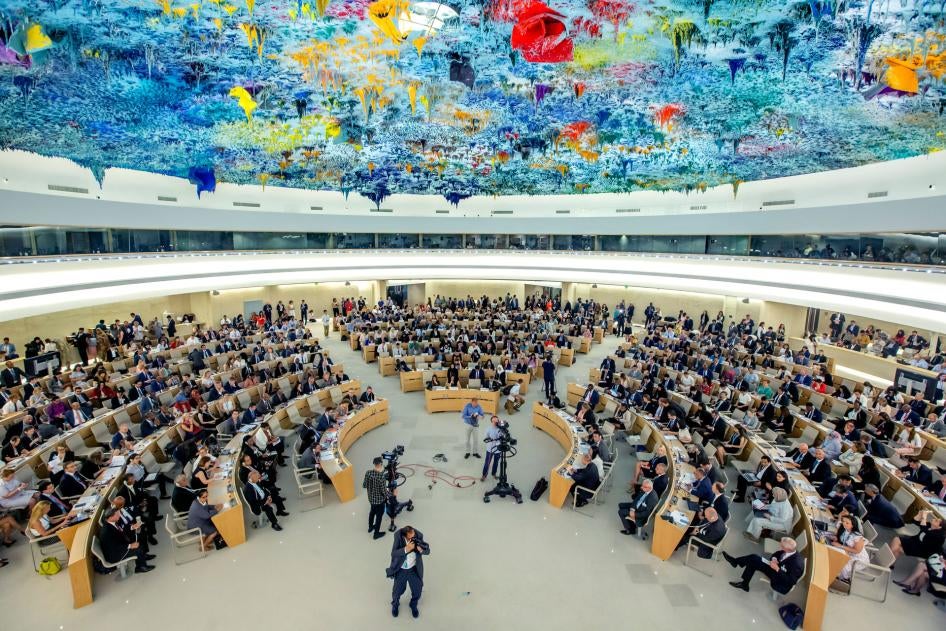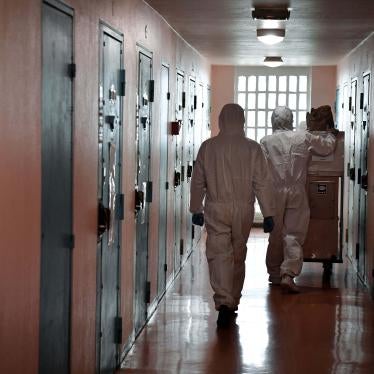Thank you Madam President.
We thank the panellists for their interventions.
Human Rights Watch is deeply concerned by the ways in which the Covid-19 crisis is impacting women and girls and how governments’ responses either acknowledge or exacerbate that.
Outbreaks of disease often have gendered impacts. Human Rights Watch found that the 2014 Ebola virus disease outbreak and the 2015-2016 outbreak of the mosquito-borne Zika virus in Brazil had particularly harmful impacts on women and girls born of and unfortunately reinforcing longstanding gender inequity.
Over the last five months, we have all watched a looming women’s rights crisis emerge from this health crisis. Women workers are over-represented in sectors that may face mass layoffs due to the economic downturn or where there may be sudden layoffs or worsening existing workplace abuses, including domestic work, garment and light manufacturing, sex work, agriculture, social care, hospitality, and community outreach.
At the same time, women globally do almost 2.5 times as much unpaid care and domestic work as men, making it harder to maintain paid employment. The devastating economic toll generated by the COVID-19 pandemic is exacerbated by weak or non-existent social safety nets in many locations.
Overloaded hospitals, travel bans, lockdowns and border closures also make access to sexual and reproductive health services difficult. Poor and marginalized women and girls, including those with disabilities, especially risk losing access. Certain governments’ responses are making matters worse by making it more difficult to access safe and legal abortion services.
Governments also need to do more to monitor and intervene to prevent violence against women during Covid-19 lockdowns. We are particularly concerned that the problem may be especially acute for women who face both discrimination and marginalization. States should ensure that they are centering women most at risk of violence and ensuring survivors have appropriate access to services, including safe shelters.
We need to ensure that no woman or girl is left behind by this crisis, and that if we are make ‘build back better’ more than just a catch phrase, we seize this opportunity to address the long standing and systemic gender inequalities that exist. We urge all States to demonstrate their commitment to gender equality not just by ensuring that the full range of women’s rights are protected, but by ensuring the pathway forward meaningfully addresses gender inequality. The Human Rights Council should ensure the rights of women and girls remain a key focus of its response to Covid-19.








